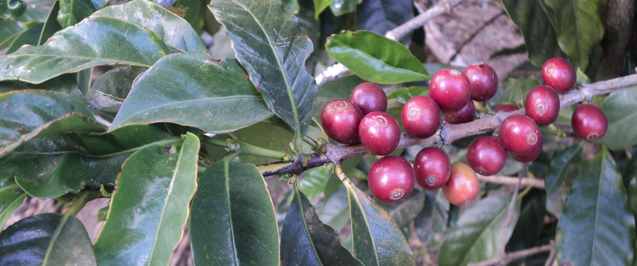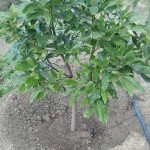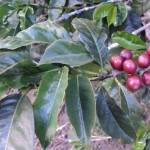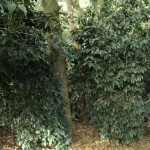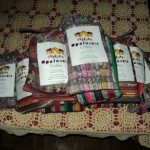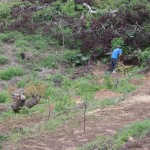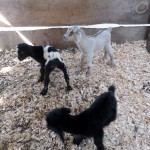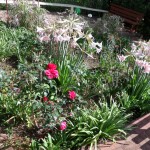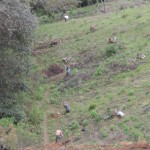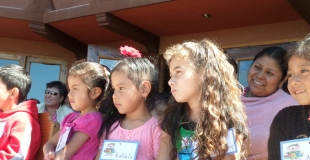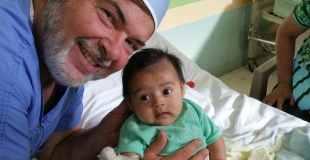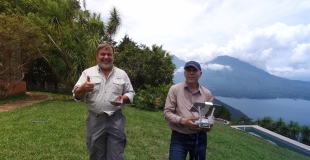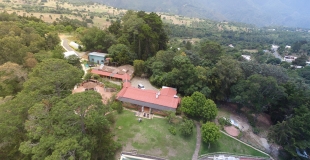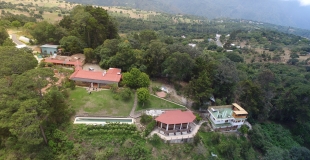Opal House Organic Farm
In 2007 when the Opal House farm was purchased, a fertilizer based farm with massive erosion problems was present. Unfortunately, the government has created a fertilizer addiction with government subsidies of free phosphate based fertilizer to the local, subsistence farmers.
In 2008 we completely changed the character of the farm into a compost based 100% organic farm.. The year after we changed to organic practices, Lake Atitlan experienced an algae bloom with dangerous cyanobacteria, confirming that organic practices are the God ordained way to farm, especially in light of the fact that we have over 70 acres of farm land that drains directly into the lake.
Our part in keeping Lake Atitlan and our farm healthy is well underway. All erosion has ceased and our farm is now a Nature Reserve. Wildlife and bird numbers are increasing in our preserved forests. In a badly reforested country, we hope to be an example of sustainability.
Avocado Produce
In 2007 our farm had about 900 old, poorly managed avocado trees with 6 different types of trees. We are in a gradual transformation to a pure Haas based farm, planting new Haas trees and cutting down the old and then grafting Haas onto existing root stock. Our workers have become proficient in this grafting process, a valuable skill. In the future, we hope to provide large quantities of organic Haas avocados to the community for nutrition and micro-enterprises.
I attended the first national avocado producers convention and there is a significant shortage of this fruit for the nation. With almost 50% of children under 5 malnourished, this is a great addition to enrich family diets. One day in the future, we hope that the avocado crop here also contributes to a self sufficient farm environment.
Organic Shade Grown Coffee
The widow who sold us the property did not know that over 1000 Arabica coffee trees had been abandoned on her own property. I recovered, pruned and organically fed these shade grown coffee fields and we are now a small, high quality coffee producer. We do not have any of the fungal rust problems that have plagued our neighbors here. We annually make 400-500 roasted pounds of our Opal House shade grown, organic coffee as a signature crop of our farm. It is the fruit of our land for all to enjoy!
Fruit and Berry Production
The school is surrounded by four types of organic berries, a handy source of vitamins for the children. Strawberries, blackberries, and two kinds of local raspberries(red and purple) are flourishing here. In addition to the berries, 400 fruit trees surround the school in an organic orchard. Bananas, guava, mandarin, orange, nispero, lemon, lime, peaches, Japanese lime, papaya, and two kinds of fruit jams are being grown to bless the children with much fruit diversity daily. We also grow watermelons and cantaloupe in our greenhouse nearby.
Animal husbandry
Guatemala has the highest malnutrition rate for children in the Western Hemisphere(U.N. 2010) and is a RELATIVE malnourishment of too many carbohydrate calories and too little protein, vitamins and minerals, producing lean protein for the children was instituted. The primary source of protein is lean turkey meat, mostly organically fed. Our turkey population is around 25 and is increasing. This lean protein is added to most school meals daily. Our goats are used for weed maintenance and their waste is part of our organic compost soil production with our California red worm bins. This earth worm casting soil, a true black earth is used in our reforestation program and in our greenhouse. The animal husbandry program is part of a bio-cycle that is sustainable.

